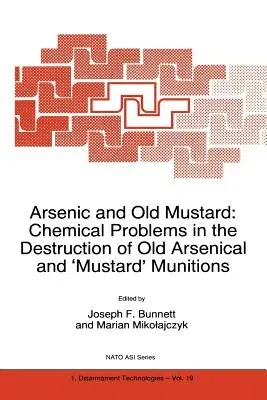Arsenic and Old Mustard: Chemical Problems in the Destruction of Old Arsenical and `Mustard' MunitionsPaperback, 5 December 2010

Qty
1
Turbo
Ships in 2 - 3 days
In Stock
Free Delivery
Cash on Delivery
15 Days
Free Returns
Secure Checkout
Part of Series
NATO Science Partnership Subseries: 1
Part of Series
NATO Science Partnership Sub-Series: 1:
Part of Series
NATO Science Partnership Subseries: 1 (Closed)
Print Length
200 pages
Language
English
Publisher
Springer
Date Published
5 Dec 2010
ISBN-10
9048150698
ISBN-13
9789048150694
Description
Product Details
Book Format:
Paperback
Country of Origin:
NL
Date Published:
5 December 2010
Dimensions:
23.39 x
15.6 x
1.19 cm
ISBN-10:
9048150698
ISBN-13:
9789048150694
Language:
English
Location:
Dordrecht
Pages:
200
Publisher:
Series:
Weight:
317.51 gm

